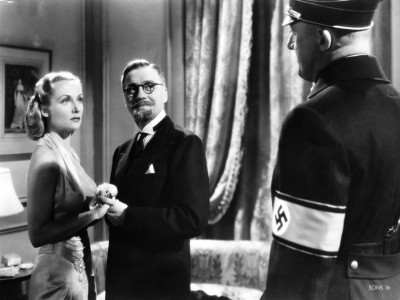


The (Silent) Lubitsch Touch
One of the few filmmakers to achieve international acclaim in both the silent and sound eras, Ernst Lubitsch (1892–1947) was the son of a Berlin tailor who began his career as an actor in Max Reinhardt’s legendary theater company and on the side appeared in early German comic one-reelers. While his transition to film directing came in this arena of ethnic comedy shorts, Lubitsch would emerge as one of the most talented creators of large-scale costume dramas, initiated by a series of historical films starring screen diva Pola Negri. Despite a genuine facility for mounting mega-productions such as Carmen and Madame Dubarry, what set Lubitsch apart was his celebrated “touch”— a scrupulous eye for telling detail matched by a sophisticated handling of affairs of the heart. His assured command of the medium remained undiminished during his shift from Germany to Hollywood, from the silent cinema to the talkies, and from the “Roaring 20s” to the more restrained world of the Depression.






